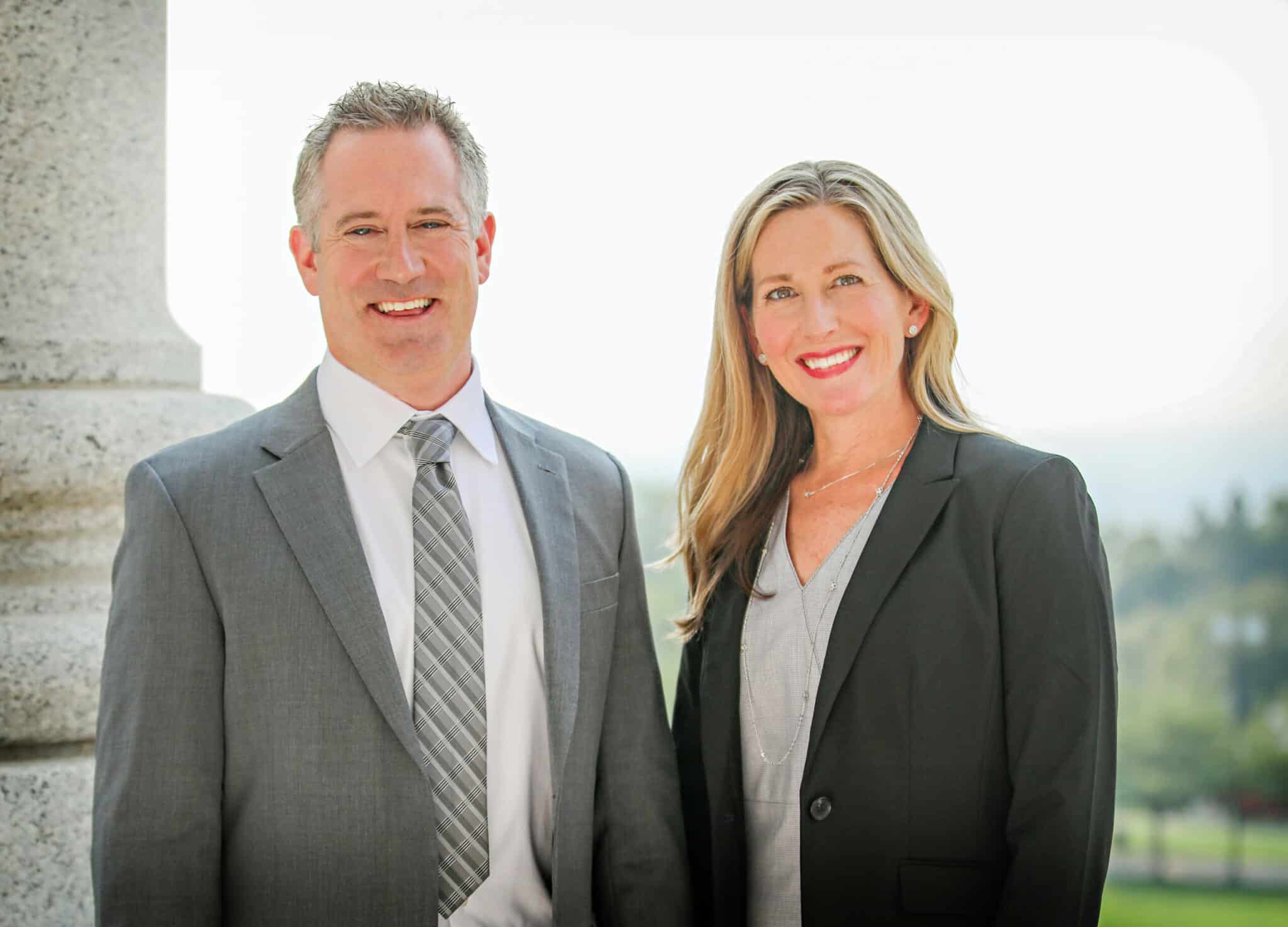At Witt Law Group, we practice criminal defense and personal injury. The two areas of law are billed very differently.
Criminal Defense—Flat fee
Nearly all criminal defense lawyers bill for legal services as a flat fee. This means the lawyer charges just one amount for your representation up to the point of trial. For example, if you were arrested for a DUI, your flat rate legal fee would cover all consultation prior to Arraignment and all the way through negotiation of your case. If the case took two hours or two hundred hours, the lawyer does not charge more.
Why won’t defense attorneys bill by the hour?
Generally speaking, hourly billing is seen as an ethical trap for defense lawyers. First, the early stages of a case can be quite time intensive. There is a lot of work in the discovery process and doing all of the follow up due diligence. It’s entirely possible the client’s retainer could be used up before the attorney can begin the negotiation process. In that situation, the client might believe the attorney “padded” hours to be able to charge more. That is not good for the attorney-client relationship, which is so critical in criminal defense. Furthermore, if the client can’t pay the additional legal fees to continue, there is a big problem. Now, the client feels she paid for “nothing” since there is no resolution and the attorney would withdraw due to non-payment.
An additional problem can arise because some judges will not let a defense attorney withdraw from a criminal case when it is for non-payment. It creates chaos for the court because the case needs to proceed but the defendant is without counsel. Unfortunately, due to the financial dispute, the attorney and the defendant might be unable to work together with the tension that has been created when the attorney tries to withdraw. It is a bad spot to be in for the attorney and the client. The trust is usually broken and the best defense can’t be presented. For this reason, the vast majority (probably 95% of experienced defense attorneys) will only do flat fee billing. It protects the attorney and the client from having this negative fallout for lack of funds.
What if I want to go to trial?
Trial fees are billed separately. For misdemeanor cases, the trial will likely be a day or two so the law firm has to factor in trial prep, inability to meet new clients, paralegal time for trial prep, and other factors that can bring things temporarily to a halt for the firm. Since misdemeanor trials are so short, the fees are typically only $1000 or $2000 a day. That won’t include any experts or investigators, if needed. Fortunately, the vast majority of misdemeanor cases do not go to trial (probably fewer than 5%) so your flat fee is likely to be the entire legal fees expense and no trial fees are included. If a client chooses to go to trial (that is always the client’s choice), trial fees are collected in advance.

What if I am charged with a felony?
If you are facing a felony charge, the legal fees are significantly higher. And, since the potential jail or prison time is much greater, many defendants want to go to trial. For this reason, felony representation is often 5-10x that of misdemeanor defense.
Felony trials can be lengthy, require many experts, and keep a defense attorney tied up for weeks or months. If you plan to hire a private attorney for a felony, be prepared to pay at least $10,000 for legal fees (closer $50,000+ if you are facing a most serious offense) and much larger daily trial fees.
Most defense attorneys handling felony defense will charge a flat fee but also take a large retainer to bill trial fees. Since it is hard to pin point how long a felony trial will take, the attorney might request a retainer to cover two weeks of a trial. If the trial only lasts one week, the attorney would then refund the remaining retainer.
What if my attorney is able to resolve my case right away? Should I get a refund?
Hopefully, you are this lucky! A pre-Arraignment resolution doesn’t happen often. If you are fortunate enough to hire an experienced attorney who is able to convince a deputy prosecutor that your case has a significant legal challenge, realize that you just got the best benefit of experience—time. Rather than waiting months to get your case resolved, be grateful that your lawyer’s years of experience worked at its best and the prosecutor was receptive to the argument.
Criminal defense fees are earned upon receipt (after signing a fee agreement) so there is no refund under this scenario. Furthermore, if a client is fortunate to get a very early resolution, realize that your attorney probably also saved you tremendous headache and costs in other areas of your life. Many early resolution cases don’t have to deal with No Contact Orders, limitations on driving privileges, professional licensing or security clearance problems, or other costly issues that arise with a criminal charge.
Side note—This is yet another reason hourly billing is frowned upon for criminal defense. When a case could be resolved early but there is “incentive” to continue the case for billing purposes, that is an ethical problem. Most defense attorneys avoid this conundrum by sticking to flat fees and working diligently to get the best and most expeditious resolution for their client.
Why does local experience matter?
Just as a dermatologist with 20 years experience can spot skin cancer better than a brand new intern, the same is true in the law. For this reason, prosecutors have greater respect for the opinions of those with more experience. When a lawyer who has been a former prosecutor and done hundreds of trials explains to a deputy prosecutor that there are serious issues with a case, it holds more weight than if a new or inexperienced lawyer made the same argument. It’s not bluffing, it’s knowledge through experience. Additionally, when you hire a local defense attorney, many of the prosecutors are familiar with the defense attorney’s skillset and win record. With a very experienced and well-respected defense attorney, that works to the client’s advantage.
Can I ask my attorney to bill me based on a contingency basis? For example, if my lawyer gets a not guilty verdict, I will pay them.
No. In fact, under the ethics rules that govern attorneys in Washington, this is expressly forbidden. Many years ago, a defense attorney was doing something similar for traffic ticket defense and she was disbarred. Under no circumstances can a criminal case be taken on any type of contingency. It is unethical and the attorney will be disbarred.
Personal Injury—Contingency fees
In nearly all personal injury cases, lawyers charge a contingency fee. The amount of the contingency (percentage) will vary depending on the stage and complexity of the case. The standard fee for most cases is 33.3% of the gross settlement. Typically, the percentage increases once a lawsuit is filed or litigation commences.
While one-third (or more) might seem like a large percentage of the settlement or verdict, the law firm is taking a risk (sometimes a very big risk) since the firm collects no money if the client does not win. A law firm can easily spend thousands or hundreds of thousands of dollars in expert fees and lose all of that investment if the jury returns a defense verdict.
Additionally, as you weigh the contingency fee structure prior to hiring a lawyer, consider that even in insurance companies’ own defense studies, it is clear that injury victims who are represented by attorneys receive more in compensation than unrepresented victims. Unfortunately, injury victims are deemed to know the law (even in complex cases) and get taken advantage of by insurance adjusters. It’s what you don’t know that can cost you the most. Despite the entertaining and clever commercial jingles, insurance companies are not on your side as an accident victim. They report billions in profits every year from NOT paying claims.
Finally, while the standard personal injury legal fee is 33.3%, Witt Law Group does consider the final settlement prior to charging our normal fee. If, at the end of the case, our client would receive less money than the firm, we will adjust our legal fee to a lesser percentage so that client gets more in his or her pocket than the firm. This is not typical in personal injury law firms so this should not be taken as a standard protocol. In fact, in most “personal injury mill” law firms, the lawyer gets paid even if, after paying all outstanding liens, the client will end up with nothing.
Side note—Medical malpractice and other special practice areas can be billed differently as well as cases where liability is of concern. Witt Law Group does not handle medical malpractice, products liability, Workers Comp/L&I, or Premises Liability (i.e. slip and fall) cases.

Get help now
Whether you choose to handle your case alone or engage the Witt Law Group, being informed and prepared is essential. Early involvement of an attorney can significantly impact your chances of a fair recovery, allowing you to focus on healing while we handle negotiations with insurance adjusters to secure fair compensation for your injuries.




